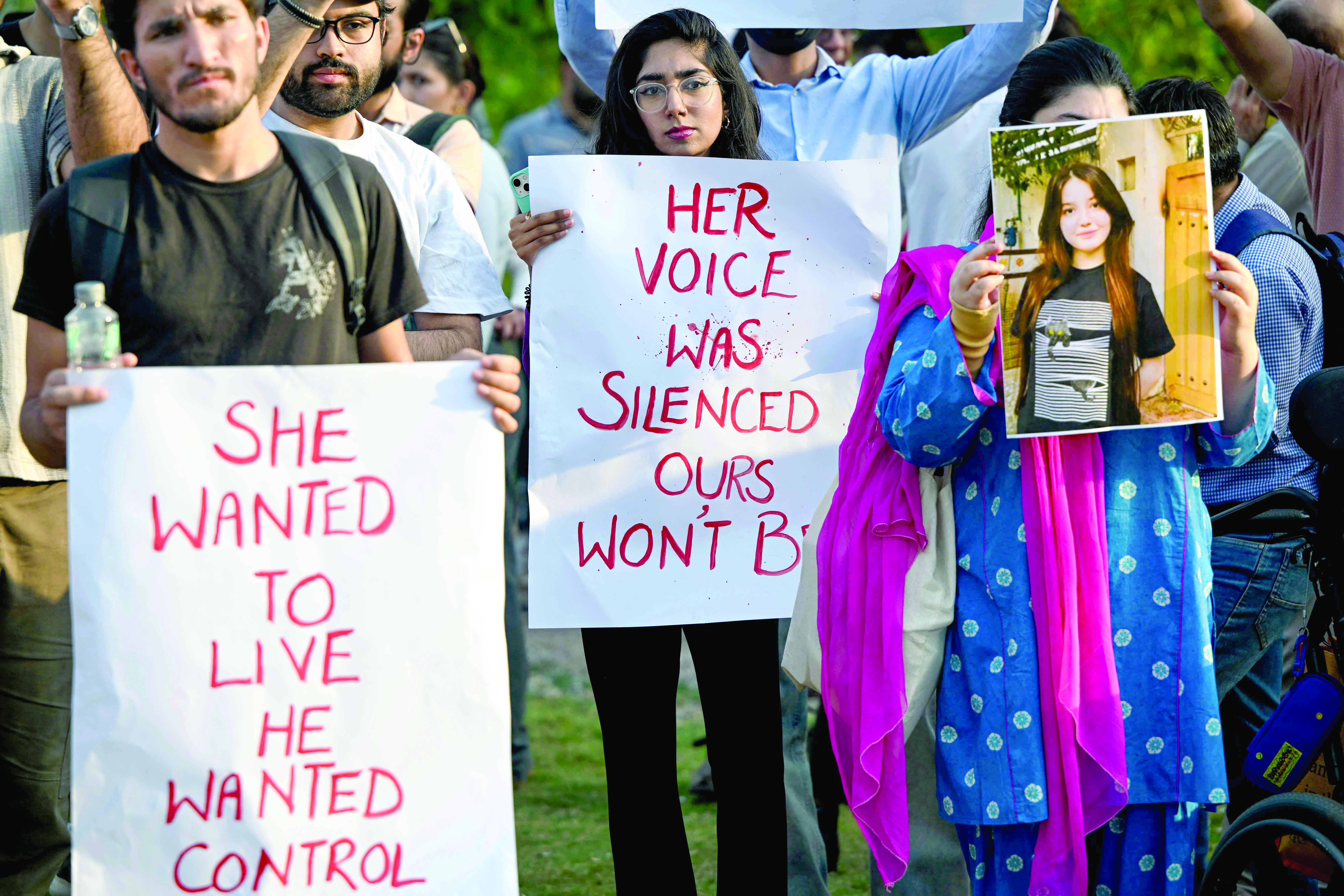Islamabad:
Since thousands of comments justifying the recent murder of a teenage tiktok star in Pakistan, Sunaina Bukhari has been planning to abandon her 88,000 subscribers.
“In my family, it was not at all an accepted profession, but I had managed to convince them, and I even ended up installing my own business,” she said.
Then last week, Sana Yousaf was killed outside her house in the capital Islamabad by a man whose advances she had repeatedly rejected, the police said.
The news of the murder led to a wave of comments under her last post – her celebration of the 17th anniversary where she blew up the candles on a cake.
Between the messages of condolence, some have blamed him for his own death: “You collect what you sow” or “it is deserved, it tarnished Islam”.
Yousaf had accumulated more than a million followers on social networks, where she shared her favorite cafes, her skin care products and her traditional shalwar Kameez outfits.
Tiktok is extremely popular in Pakistan, partly because of its accessibility to a low -level population of literacy. With that, women have found both audience and income, rare in a country where less than a quarter of women participate in the formal economy. But as Tiktok’s opinions have increased, efforts to control the platform.
Pakistani authorities on telecommunications have blocked or threatened several times to block the application on what it calls “immoral behavior”, in the midst of the LGBTQ and sexual content.
Tiktok has committed to better moderate content and blocked millions of videos that do not respond to its community guidelines as well as to the request of the Pakistani authorities.
After the murder of Yousaf, Bukhari, 28, said that his family no longer supported their involvement in the industry.
“I am my family’s first influencer, and perhaps the last,” she told AFP.
According to the mobile mobile mobile gender gen, women in Pakistan, do not have a smartphone, compared to twice as many men (58%), the largest gap in the world.
“Friends and family often discourage them from using social media for fear of being tried,” said a declaration by Digital Rights Foundation (DRF).
In the southwest of Balutchistan, a man admitted to having orchestrated the murder of his daughter 14 years earlier this year on Tiktok videos which, according to him, compromised his honor. In October, Karachi police in the South announced the arrest of a man who killed four parents on “indecent” videos Tiktok.
These murders relaunch each of the memories of Qandeel Baloch, one of the country’s first social media stars whose videos made him pass glory. After years under the spotlight, she was muffled by her brother.
Violence against women is omnipresent in Pakistan, according to the country’s human rights committee, and cases of women attacked after rejected men are not uncommon.
“He’s not a crazy man, it’s a culture,” said Kanwal Ahmed, who runs a closed Facebook group of 300,000 women to share advice. “Every woman in Pakistan knows this fear. Whether on Tiktok or has a private Instagram with 50 subscribers, men show up. In her DMS. In her comments. In her street,” she wrote in a post.
In the fifth most populated country in the world, where 60% of the population is under the age of 30, the director of the Bolo BHI digital rights organization, Usama Khilji, says that “many women do not publish their profile photo, but a flower, an object, very rarely their face”.
“Misogyny and patriarchy that prevails in this company are reflected in online spaces,” he added. A 22 -year -old man was arrested for Yousaf’s murder and is expected to appear in court next week.




